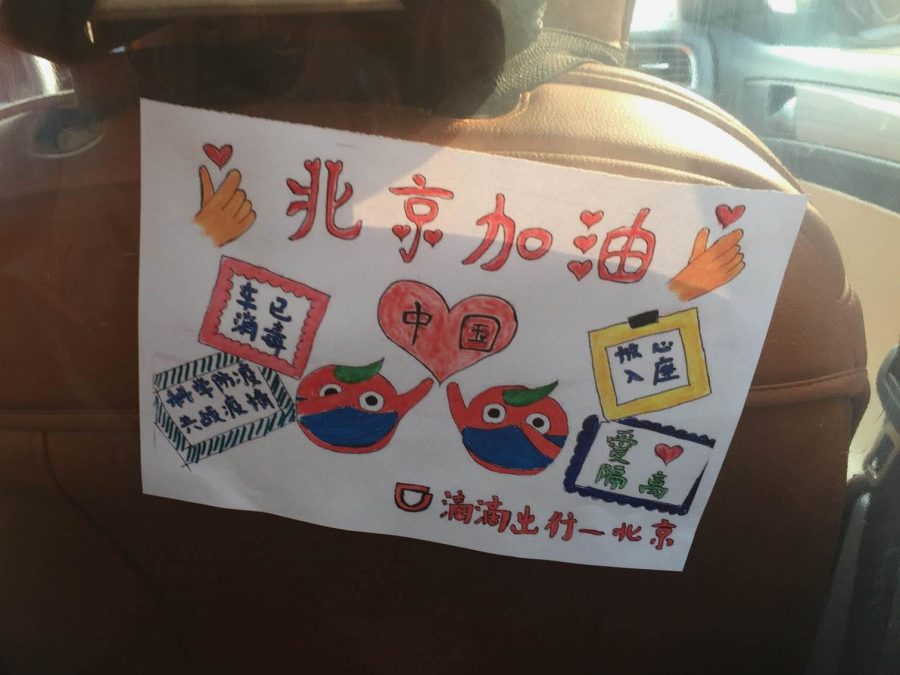Two American men living in the two most highly populated cities in China have shared how the presence of the coronavirus directly affects their daily lives and the communities they live in.
The coronavirus disease, or COVID-19, began as a pneumonia of unknown causes and has progressed from a story of hundreds infected in China to a narrative of tens of thousands infected worldwide. As the question of a pandemic status jumps between headlines, many find the barrage of information and speculation alarming and wonder how the disease would impact their communities.
These two men, whose real names have been removed for their safety, gave their perspective on the situation in China. One man, whom we will call “Matthew,” moved from Maine to China in 2017 as an ESL teacher and lives with his newlywed wife on the outskirts of Beijing, about 11 hours from the believed outbreak epicenter in Wuhan.
Matthew said he first started to realize the magnitude of the coronavirus outbreak when the government offered ticket refunds to discourage travel on Chinese New Year Eve.
Visiting one’s hometown to see family during the New Year is an important tradition in China and is encouraged to facilitate family bonds for the good of society. Matthew said he knew the government wouldn’t be discouraging travel unless the situation was serious.
Now his city is under strict regulations to prevent further spread of the disease, including barricades around every apartment complex and individual restrictions against non-residents.
To get through the single gate in his apartment’s barricade, Matthew walks through a tunnel of diffused disinfectant. “Once I’m outside, there’s really no place to go except for the neighborhood store,” Matthew said.
To reenter his apartment block, he submits to a temperature check, shows an ID card proving he lives there and passes back through the disinfectant tunnel. Matthew said although everyone was very afraid early on, at this point most people are tired of staying home and want to return to work as soon as the situation clears.
For those who are still going to work, there are more precautions to limit the danger of exposure to and spread of the virus. According to an English translation by thebeijinger.com of the official Beijing Fabu WeChat account, officials in Beijing released a list of rules for the workplace. The 10 safety rules include limiting elevator rides to 50% capacity, not facing others during mealtimes and checking temperatures daily.
Mandatory preventative measures aren’t limited to the workplace. Another man, whom we will call “John,” is an administrator at a large public research university in Shanghai. John said that not only are daily temperature reports mandatory in the university housing but that leaving assigned buildings is strongly discouraged and requires an explanation.
A recently implemented citywide health measure requires an app on people’s phones that shows which public places they have been to and whether there have been infected people in those locations. John said without the app, you can’t enter most places.
Regardless, there is not much incentive for leaving. John said many businesses have closed, including a shopping mall across the street from his building.
A large fence was built on its perimeter and a guard in a hazmat suit takes peoples’ temperatures visiting the sole open supermarket and convenience store inside.
John said the university usually houses about 10,000 students, but right now there are a few hundred at most. “The offices are closed, the campus dining halls are closed, everything is closed,” he said. “My kids are also unable to return to school.”
All schools in China are closed by order of the government, and students are taking their courses on a national online cloud classroom announced in a press release by China’s Ministry of Education. But according to China Comment, a state media website, maintaining routine education is not the only consideration of the government.
“The current fight against epidemics is a magnificent classroom for children,” the article said. “We need to guide the younger generation to observe and reflect on reality and build a correct worldview, [outlook] and values.”
Because of the thorough quarantine measures, traveling to or from affected countries is either difficult or impossible.
John’s wife was in the U.S. visiting her sister when the epidemic began and doesn’t know when she will be able to return to her husband and children, and Matthew faced a dilemma when he needed to temporarily exit China to renew his residency visa.
John said there can be a temptation to be afraid as well as irritable or impatient during unusual situations. But despite the unknown, he said Christians are grasping the chance to share the Gospel.
“I’m thankful that God is sovereign over all these things!” John said. “We all need God’s grace to continue to demonstrate the character of the Gospel.”
Matthew said that he also sees the coronavirus epidemic as a big opportunity to talk about faith in God amongst the Chinese people, something considered taboo under normal circumstances.
“I think a general awareness of the frailty and brevity of life has been raised in the public consciousness,” Matthew said.



























































